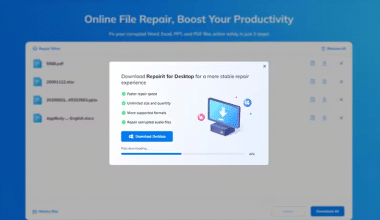Employee empowerment benefits an organization by increasing worker productivity and performance. Employee output will rise along with feelings of increased job satisfaction and employer loyalty. The key to empowering your employees is to grant them the freedom to take initiative and make decisions within your business. Ensuring that these behaviors are in line with corporate goals, also implies mutual trust and understanding. Women can benefit from financial empowerment as well.
This blog explains the meaning of employee empowerment, its significance, practical advice, and advantages.
Empowerment
Empowerment is the interpersonal process of providing others with the ideal conditions, means, and means for constructing, growing, and increasing their capacity and effectiveness to set and achieve personal goals.
Employee Empowerment
Employee empowerment is the process by which organizations give their workers some degree of autonomy and control over their daily tasks. This can involve managing smaller departments with less supervision from higher-level management, having a say in process improvement, and assisting in the creation and management of new systems and strategies.
Employee empowerment is a management tenet and human resources approach that gives workers more control over their work and increase their ability to contribute. It may allow them to have a greater say in corporate decisions that directly affect them and give feedback on business operations and strategies that they help to develop. It may also entail giving them the chance to prove themselves worthy of having the power to manage smaller departments and manage their teams without needing the approval of more senior team members.
Types of Employee Empowerment
Employees who feel empowered are more motivated to work hard, perform well, and use their skills. A small group of employees that empowered managers believe can make decisions, set goals, and succeed are given some of their authority.
- Empowering employees to make decisions: This occurs when a business gives them the authority and resources they need to do so.
- Financial empowerment: Giving employees control over the company budget so they can make decisions is a practice in which employers empower their staff.
- Empowering time management means giving workers the freedom to choose how to use their time to complete tasks.
- Managers can empower employees by sharing crucial business information that lowers barriers, clarifies issues, and fosters a sense of belonging.
Benefits of Employee Empowerment
#1. Increased Motivation
One of the benefits of employee empowerment is increase in motivation. Employers who empower their staff can encourage them to finish projects on time and to a higher standard. This is so that they can choose their schedules for work and locations.
#2. Process Improvement
A process can be streamlined for the better when all employees involved can provide feedback. By doing so, the company can increase productivity and efficiency while cutting costs and processing time. Process improvement is another benefit of employee empowerment.
#3. More Trust
Employees feel more trusted by their leaders when organizations give them more authority to make decisions in the workplace, which fosters greater trust between the two parties. As a result, the workplace becomes stronger and healthier. This becomes another benefit of employee empowerment.
Leaders who give their staff the freedom to make decisions act as coaches, encouraging and supporting them as they work toward their goals. Employees who had a sense of leadership trust believed that their bosses would not abuse the bonds they had built through their work.
#4. Improved Creativity
Organizations can benefit from employee empowerment through creativity. Employees may have opinions or skill sets that are different from those on which the company typically bases its decisions. Furthermore, giving employees the freedom to share their original and creative ideas can be advantageous for the organization.
#5. Reduced Turnover
Businesses can also decrease employee turnover and hiring expenses if an employee feels that their current position gives them the chance to advance in their careers. Additionally, it can allow workers to build a career within a single company.
#6. Greater Productivity
Staff members who feel empowered at work may be more motivated to work hard and come up with better solutions to issues. This could raise the company’s output, effectiveness, and revenue. Employees who feel empowered at work are more engaged, motivated, and committed to their jobs.
They feel more accountable and like owners of something when they can make choices and take action. Productivity rises as a result of employees being more likely to go above and beyond to accomplish their goals.
#7. Improved Job Satisfaction and Morale
Employee empowerment also plays a role in fostering a supportive workplace environment where people feel respected and valued. Employee morale and job satisfaction are raised when they are given a voice in decisions and given the freedom to carry them out. The result is improved motivation, loyalty, and job retention.
#8. Faster Problem-Solving
The quicker an organization can fix a problem, the more people contribute to solving it. This is so that the company can gain from a broader and more inventive range of ideas from workers who feel encouraged to offer their perspectives. Employees who feel empowered can take initiative and solve issues in their specific fields of expertise. Quick decision-making and problem solving is another benefit of employee empowerment.
Organizations can also make decisions more quickly and with more knowledge if they decentralize decision-making and give the people who are closest to the issues more authority. This not only makes it easier for top-level management to do their jobs better, but it also makes it possible for the company to respond to opportunities and challenges more quickly.
#9. Better Customer Service
Employees who have access to the proper tools are better able to make decisions that directly impact customer satisfaction. Employees who feel empowered are more likely to go above and beyond to satisfy customers’ needs, find solutions quickly, and offer individualized service. This results in improved customer experiences, more devoted clients, and positive word-of-mouth promotion for the business.
#10. Development of Leadership Skills
Employee empowerment offers the chance to grow and improve one’s regular and senior leadership skills. When workers are trusted with decision-making and given accountability, they gain priceless experience in managing tasks, collaborating with others, and taking accountability. This may enable them to advance their careers and identify potential strong future leaders for the organization.
#11. Increased Employee Engagements
Employees who feel empowered take pride in their work and have a sense of purpose. They believe that what they do matters and directly affects how well the business is doing. Higher employee engagement also results from people being more invested in their work, dedicated to achieving organizational goals, and ready to go above and beyond.
The Importance of Employee Empowerment
#1. Work Performance
Quality increases sales and patron loyalty. Employee input will enhance the quality of a product or service. The outcome is satisfying and advantageous for both customers and employees.
#2. Increasing Cooperation
Employees with more confidence tend to share more knowledge and best practices. Teamwork is enhanced by honesty and openness. A company can achieve its strategic goals by collaborating more and taking initiative.
#3. Increasing Productivity
Productivity will increase with self-assurance and a quality-driven, team-oriented mindset. Employee improvement is stimulated by ownership of the process and the final product. Organizations that value employee empowerment experience less waste, bureaucracy, and time waste.
Tips to Follow in Employee Empowerment
#1. Delegate to Develop
Frequently, when you delegate to free yourself of time-consuming tasks, you lose the chance to empower and develop your team. Instead, rely on them to increase and improve the duties and capabilities of your employee.
#2. Make Expectations Clear
Establish the boundaries of your employee’s freedom of movement. By laying out clear expectations (while avoiding micromanagement), you can empower your staff to take initiative while ensuring they adhere to corporate goals.
#3. Allow Staff to Choose Their Tasks
Being mindful that the employee might complete the task in a different way than you when you delegate is important. If an employee takes a different path than you would to get from point A to point B, that is acceptable. Give up control, refrain from micromanaging, and accept the possibility that there may be alternative (or superior) methods of carrying out a project.
#4. Supply the Necessary Resources
Many business owners and executives lament that after implementing employee empowerment strategies, staff members still come to their offices expecting problems to be magically resolved. Instead, offer sources, instruments, and a discussion forum for ideas.
#5. Provide a Constructive Critique
While reviewing a project, be considerate and thorough in your feedback. Clearly state the actions or attitudes you want to see continued, as well as how they affect other people. An affirmation of “nice job” does not influence future behavior.
#6. Accept Suggestions and Advice
Every time you can involve your staff in setting objectives and making decisions. If they are unable to take part in these initial procedures, be open to their suggestions and opinions. Being receptive to fresh perspectives can inspire employees and bring creative ideas to your business.
It is more important than ever for workers to feel like builders rather than cogs in a machine. They will have more faith in their ability to make a difference if you make it clear to your staff what the organization’s mission is and how each team and member contributes to it.
#8. Organize a Program for Employee Appreciation
Do not skimp on the quality of your gratitude. If you thank someone for a job well done (and do it even better), they are more likely to perform the same action again. Additionally, it will inspire them to act, come up with ideas, and solve problems.
Strategies for Putting Employee Empowerment in Place
#1. Maintain Clear Communication of Expectations
If your employees are unsure of their responsibilities, it is impossible to empower them. Clearly defining roles, responsibilities, and objectives for their team members should be a priority for empowering leaders. This can be accomplished through consistent communication, feedback, and frequent performance evaluations.
Remember that this communication is a dialogue rather than a monologue; for this reason, it is crucial to offer the proper level of direction, pay attention to team members’ inquiries, and be receptive to criticism and suggestions.
#2. Provide Opportunities for Learning and Growth
Giving employees the freedom to decide for themselves and take responsibility for their work is one way to empower them, but another is to make yourself available to them and provide support and growth opportunities. Employees who are given the proper resources and training can take calculated risks and feel confident in their ability to succeed.
#3. Encourage Participation and Feedback From Employees
To develop an empowerment culture, it is crucial to get open feedback from employees and involve them. Managers should take every possible step to ensure that their team members understand they are free to provide feedback, take part in decision-making, and express their opinions.
When their suggestions are seriously considered and put into practice, employee empowerment is more likely to happen.
#4. Create a Welcoming Work Environment
A company’s culture plays a crucial role in its operations. Numerous workers find it difficult to feel empowered and give their best work without a supportive workplace culture. Therefore, it is critical to prioritize the interests and welfare of your employees if you want to ensure the success of your business. This could entail offering remote work options, encouraging work-life balance, and fostering a welcoming environment that values inclusivity, diversity, and open dialogue.
The good news is that you can improve business outcomes, organizational agility, and employee happiness by creating a supportive workplace culture. An atmosphere of constant improvement is frequently the result of empowerment.
#5. Recognize Effort and Commitment
Recognizing and appreciating your team members’ dedication and hard work is an essential strategy to use if you want to empower your workforce. A great way to let your staff know their work is valued and appreciated is to recognize and celebrate small victories and accomplishments. Even seemingly insignificant victories have a big effect on team morale, drive, and output.
Create an employee recognition program, write an employee profile, and routinely acknowledge your team’s achievements in team meetings and one-on-one conversations. By doing this, you can create an atmosphere where showing gratitude and receiving recognition is valued, which will promote employee engagement.
#6. Leave Room for Error
Errors are a necessary part of learning, developing, and evolving, and they are likely to occur as empowered employees undertake new initiatives.
Mistakes are seen as opportunities rather than failures in a culture of empowerment. In other words, as long as employees learn from their errors and avoid making the same ones again, mistakes can lead to development. When errors are made, leaders must assist staff members in deciphering what went wrong, locating potential fixes, and creating a course of action for the future.
Financial Empowerment
Being in charge of your finances rather than having them control you is referred to as financial empowerment
Setting financial goals, creating and carrying out a plan to uphold the standard of living you choose, and having a plan in place to deal with unforeseen financial obstacles that arise along the way are all aspects of financial empowerment. Whether you earn entry-level wages or six figures, gaining financial empowerment involves taking control of your money.
Understanding your emotional connection to money and how this may influence your financial decisions is one step toward achieving financial empowerment. Financial empowerment involves both the mind and wallet. A rational, calculated approach to money is influenced by preparation, careful planning, and matching your spending and saving to your long-term objectives
Budgeting is only one aspect of planning; another is being ready for the unforeseen. Understanding financial empowerment enables one to plan ahead for unforeseen circumstances. You can choose wisely even in an emergency by making plans in advance. The benefit of using financial empowerment is that.
By setting aside money each month and exercising financial self-control, you can accumulate an emergency fund. You ought to be prepared to live comfortably for three to six months in the event of an emergency or job loss by having enough money saved.
What is Women Empowerment
The term “women’s empowerment” (or “female empowerment”) can mean a variety of things, such as respecting women’s opinions, making an effort to find them, and improving women’s status through training, awareness, and education. Through various societal mechanisms, women are empowered to make decisions that affect their lives.. In addition, women’s empowerment refers to their ability to make wise life decisions that were previously out of reach for them. These affirmations for women’s rights will encourage you to continue breaking through the glass ceiling.
What Is an Example of an Empowerment Employee?
Giving workers a say in significant decisions that may have an impact on them is one of the simplest examples of employee empowerment. Others include
- Engage employees in business decisions.
- Offer managers training programs.
- Employ employee recognition programs.
- Ensure that decisions are made independently.
What Is the Best Way to Empower Employees?
- Grant authority to create.
- Set clear expectations
- Ensure that workers have freedom in their assignments.
- Provide necessary resources
- Provide constructive criticism.
- Consider suggestions and input.
- Share the organization’s mission and goals.
- Reward employees for their efforts.
What Is the Core Value of Empowerment?
When we recognize and celebrate our own or another person’s potential, we are said to be empowered. This entails placing value on talents, objectives, and education. It enables someone to experience gratitude, support, and motivation. It instills a sense of control and purpose in a person’s life.
In the workplace, empowerment refers to giving workers the freedom to take responsibility for their tasks and participate in worthwhile decision-making. In an environment where employees are empowered, managers assign tasks, freely exchange information, and ask for feedback from their staff.
How Do You Show Empowerment at Work?
- Create an environment of trust.
- Offer Sincere Criticism.
- Be compassionate.
- Encourage open communication.
- Be Purpose-Driven.
- You should assign tasks and responsibilities.
- Encourage Possibilities for Growth
What Are the Four Benefits of Employee Empowerment?
An empowered workforce will likely produce more work, be more engaged at work, provide better customer service, and enhance workplace culture. Even though it might be challenging to see, all of that translates into observable characteristics like increased profits and employee retention rates. enhanced accountability, a faster turn-around, and better customer service.
What Is the Best Describe Empowerment?
People being in control of their own lives is what is meant by empowerment. Individuals receive the correct support they require. People become equal citizens as a result of empowerment. They enjoy respect and self-assurance in their neighborhoods. As a result, they can act responsibly and independently on their behalf when representing their interests.
Conclusion
An environment of trust, cooperation, and continuous improvement results from employee empowerment. Companies can get the most out of their staff by allowing them to take initiative, which boosts output, fosters innovation, and increases employee satisfaction. According to research, empowering employees improves their performance at work and in school. More personnel and complexity are advantageous for larger businesses. Also, budget planning improves financial empowerment.
Through employee empowerment, businesses must find ways to inspire, excite, and encourage their workforce. It encourages employees’ emotional health by giving them a sense that they are making a significant contribution to the company’s success.






